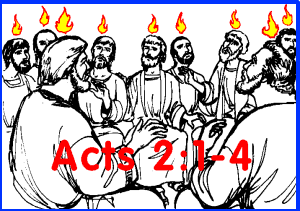
Proof Pentecost always fell on a Sunday (1st day)
"You shall also count for yourselves from the day after the sabbath, from the day when you brought in the sheaf of the wave offering; there shall be seven complete sabbaths. You shall count fifty days to the day after the seventh sabbath; then you shall present a new grain offering to the Lord. " (Leviticus 23:15-16)
